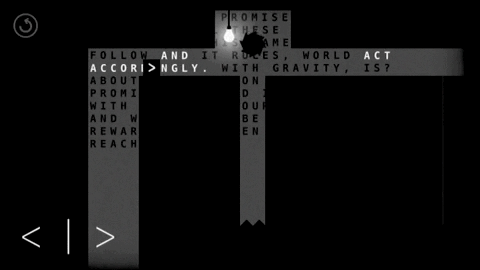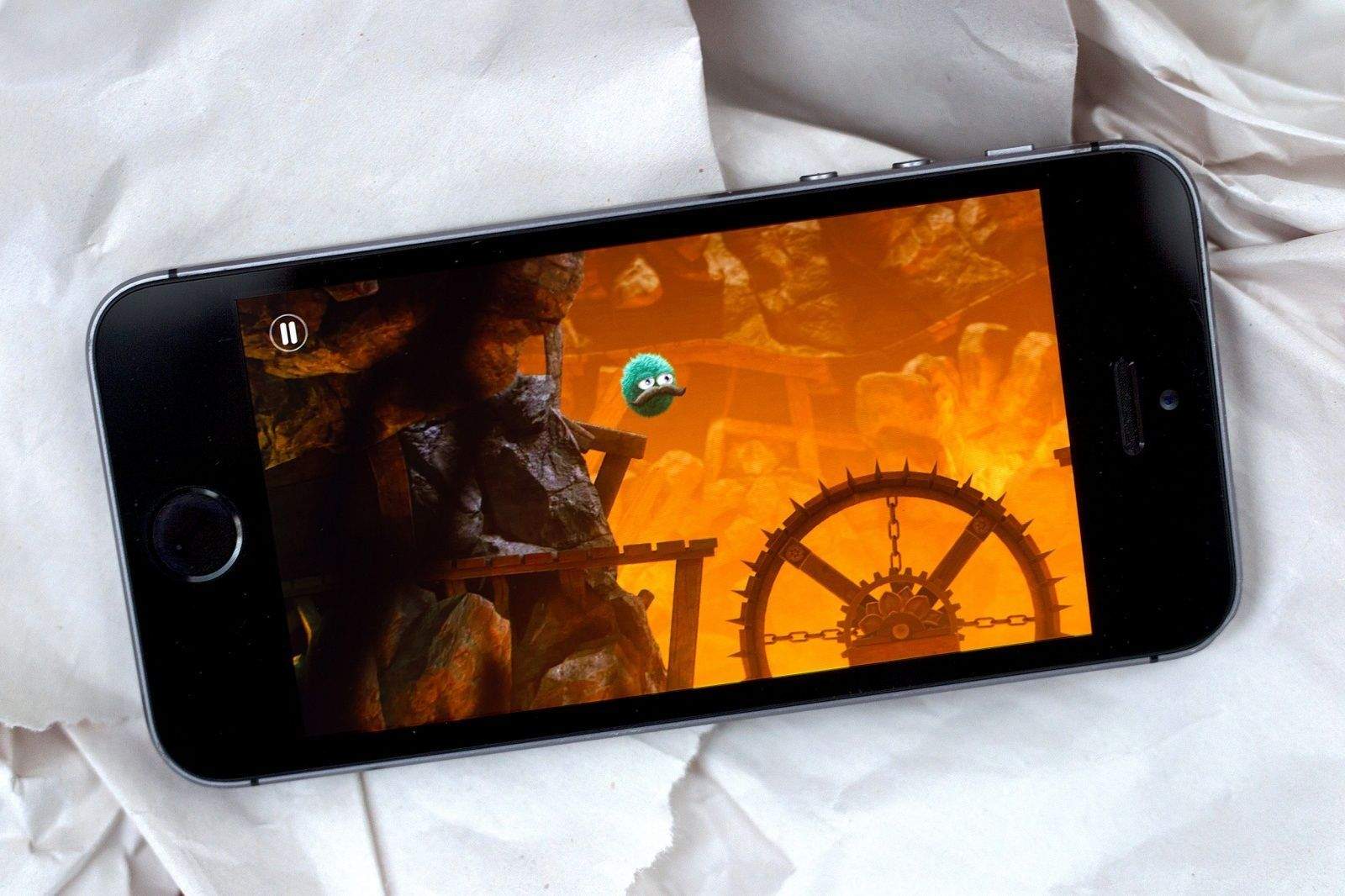A simple glance at the stunning games perched atop the App Store game lists reveals we are experiencing a golden age for mobile gaming.
From the surreal, mind-bending Monument Valley to the Pixar movie brought to life that is Leo’s Fortune, 2014 has seen some of the most startlingly original gaming experiences in years arrive on iOS.
“I do feel like we are in a boom period,” says John Comes, design director at Uber Entertainment, the company behind games like the newly released Toy Rush.
Although Apple has been a hub of gaming going back to the glory days of the Apple II, today’s crop of hot titles are reshaping the landscape like never before. The present explosion of innovative iOS games results from several fortuitous factors coming together. Here’s why there’s never been a better time to be a gamer.
“Not having a massive marketing budget, I knew that I had to have an idea that was instantly sellable.”
From the moment the iPhone landed, indie game developers realized the opportunity the device represented. While the first games were available only for the jailbreak community, the floodgates opened to a host of wannabe game-makers the moment Apple published its iPhone SDK.
“As a non-corporate entity you have to get your product out there and get it seen,” Steve Demeter, developer of early iOS hit Trism, told me for my book The Apple Revolution. “Not having a massive marketing budget, I knew that I had to have an idea that was instantly sellable, that utilized technology that had never been mass-marketed before.”
A nifty puzzle game that utilized the iPhone’s accelerometer, the ultra-original Trism cost Demeter less than $1,000 to make and put into the App Store. Within two months, he had earned $250,000. He certainly wasn’t the last iOS developer to make it rich.
The App Store tapped into a well of creativity by attracting would-be game developers who previously had not been given the opportunity to create or were frustrated by the limitations of working within “the system.”

“Since independent developers don’t have to think about shareholders or quarterly fiscal reports like the big studios and publishers, they can focus solely on creating an interesting product instead,” says Anders Hejdenberg, the brains behind indie hit Leo’s Fortune. He worked on console video games before striking out on his own after becoming disillusioned with the “sequels and politics” mindset that rules most big game companies.
Indies might work with limited budgets, but they’re not as risk-averse as the major studios because they don’t has as much to lose, Hejdenberg says, adding that “since you haven’t necessarily worked with games before, there’s a good chance that you can see things a bit differently.”
This ability to “think different” works hand in hand with today’s increasingly diverse gamer demographics. Whereas big studios always focused on the broadest market possible as they searched for a guaranteed hit, online audiences are much more likely to be made up of niches.
“Independent developers … can focus solely on creating an interesting product.”
“Before the Internet, if you liked a weird thing you were probably the only person you knew that did,” says Michael Townsend, co-creator of A Dark Room, the graphics-free game that became an unlikely smash hit, averaging 10,000 downloads a day and becoming the No. 1 paid iPhone game last month. “Maybe one or two friends would share your interest, but certainly not enough people to create a product for. Now, those scattered fans can easily find each other and become a group with enough economic impact to shift markets.”
Townsend gives the example of a developer who wants to build an abstract 2-D platformer about a subject like the socioeconomic landscape of Russia in 1947. A decade ago, there was no chance you’d find a studio interested in it. But today? “I’m sure you can find the group that desperately wants to play that game, and will pay to have it created,” Townsend says.
While it’s not about post-World War II Russian economics, it’s difficult to imagine a game that would have seemed less likely to succeed than Sometimes You Die, a minimalist platformer whose creator set out to make a “game that questions its own existence” by purposely stretching the idea of “fun” to its breaking point. The resulting game rocketed to the top of the App Store rankings.

Naturally, there are some new challenges to overcome in this golden age of iOS games. Take, for instance, the bottom-feeders who regularly clone popular apps and distribute them to earn a quick buck. Just weeks after the meteoric rise of Flappy Bird, the App Store was flooded with knockoffs like Flying Bird — Up to the Sky and (my favorite) Flappy Beard Hipster Quest.
Apple claims it tried to block the cavalcade of clones, but at the height of Flappy mania around one-third of all games appearing in the App Store were knockoffs. Because independent developers often lack the kind of money needed to hire expensive lawyers, enforcing copyrights and trademarks can be difficult.
Another irritant? “Freemium” games that charge extortionate prices for in-app purchases, an unfortunate trend that could prove damaging to iOS gaming in the long-term. Rendering games unplayable unless buyers splash out for repeated in-app purchases is not an ideal mechanism.
Poor signal-to-noise ratio can also make it difficult for users to find quality games in an increasingly crowded marketplace. “I feel as though the App Store still has a discoverability issue,” says Uber’s Comes. “Once your game falls out of the feature area, it’s hard to acquire users organically. Some sort of recommendation system would go a long way to continue to have games — especially premium games — have a longer sales tail than they currently have.”
Thankfully, Apple seems to be doing its best to combat these problems. During the Design Awards at Apple’s recent Worldwide Developers Conference, all prizes were awarded to premium titles like Monument Valley rather than freemium games. Apple is also taking a page out of the Beats Music playbook by embracing the idea of human curation, in the form of editor’s picks, rather than simply relying on the kind of algorithm-driven recommendations that can be easily gamed.
“It definitely helps,” Comes says of Apple’s attitude. “I can see how they are improving the App Store by putting forth more and more games that are not just fun, but really unique. You don’t get that with pure algorithmic-generated content. The recent push to make groups of games and feature the groups as well as single games has also helped push both the sales and recognition for these great indie games.”

Photo: Jim Merithew/Cult of Mac
But since Apple makes a lot more money from freemium games than it does from premium ones, why is the company so keen to embrace underdogs rather than putting its full weight behind King.com and other major freemium developers?
“I think an important part of this is that Apple don’t just sell games, they also sell the devices that run those games,” says Leo’s Fortune maker Hejdenberg. “The apps that people use on their devices are an extension of the device, and even though freemium games as a whole generate more money on the App Store, I think that premium games help sell more Apple devices — and that’s where they make the really big bucks.”
Ultimately, quibbling about the bad aspects of subpar iOS games is a bit like picking out a rare HBO miss and failing to recognize great shows like Game of Thrones, True Detective and The Sopranos.
“The most important thing you need today in order to succeed is talent and a good idea,” Hejdenberg says. “There’s no impossible money barrier, you don’t need to know the right people — you just need to be able to make something that people find interesting. You may not become a millionaire overnight, but at least you’ll be able to eat and pay rent and do what you love every day.”
And everyone — Apple, the developers and gamers — wins from that approach in the end.


